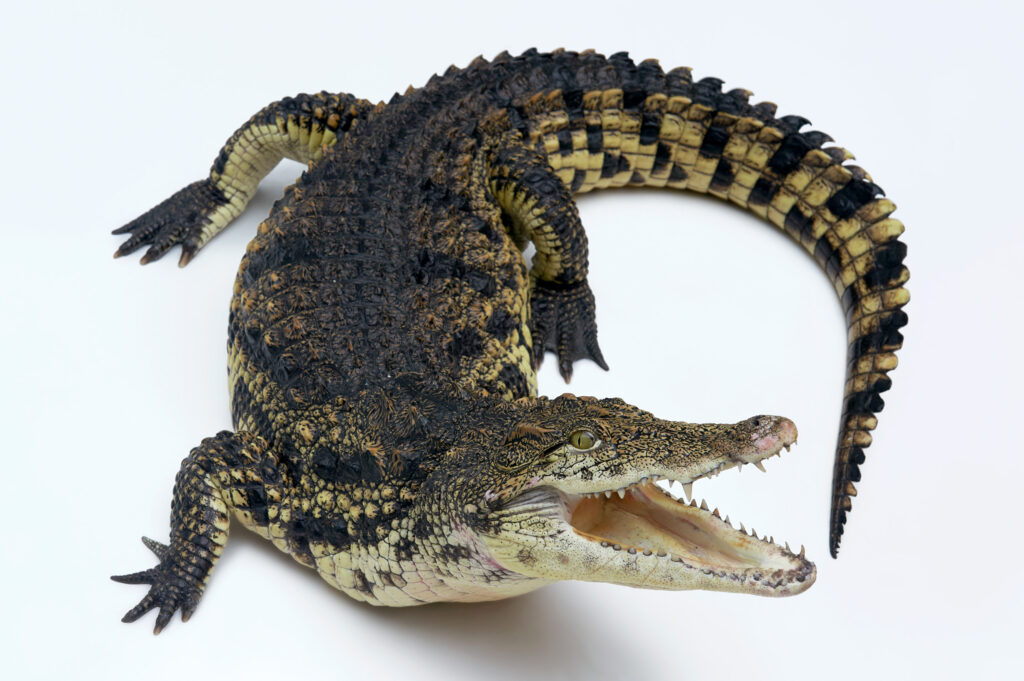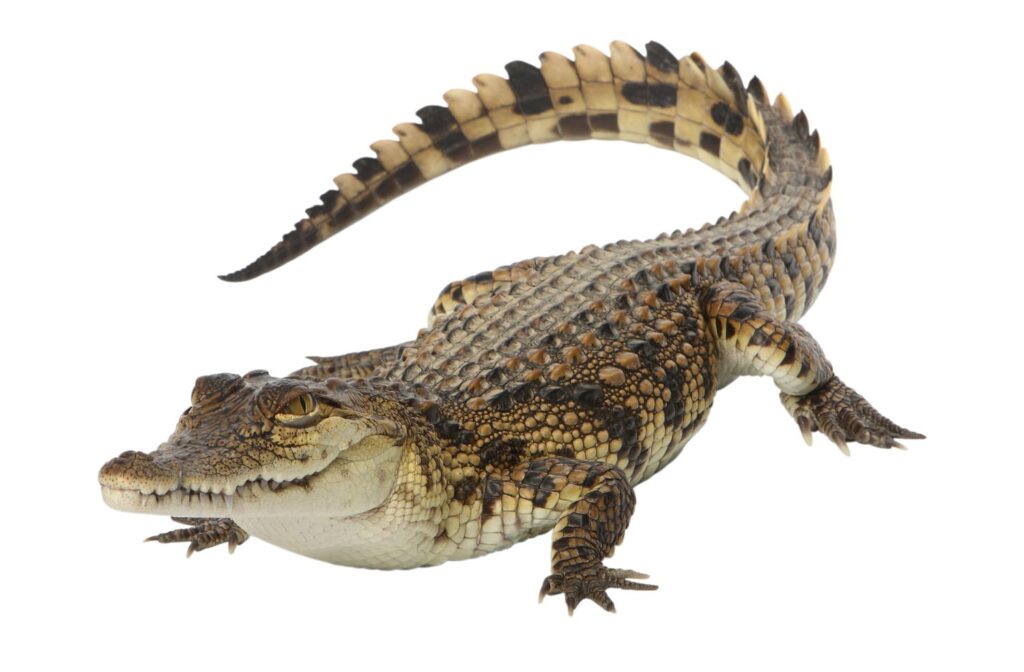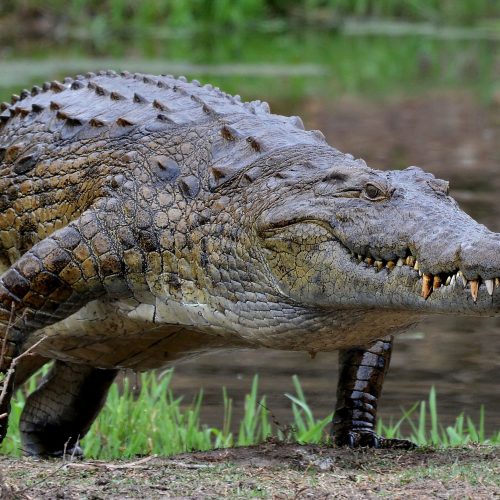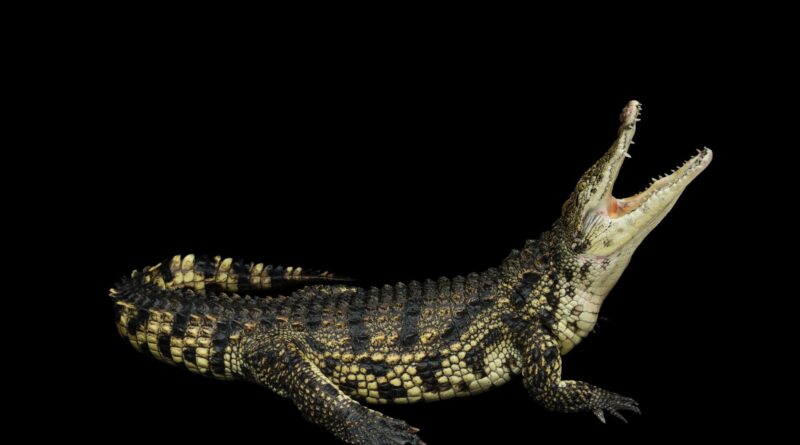Nile Crocodile Wildlife Conservation Efforts
Nile Crocodile Wildlife Conservation Efforts The Nile crocodile (Crocodylus niloticus), a formidable reptile found in various freshwater habitats across Africa, plays a crucial role in maintaining the balance of its ecosystem. These ancient creatures are apex predators, helping regulate populations of other species in their environment. However, Nile crocodiles face numerous threats that have led to declines in their populations. This article explores the conservation efforts aimed at protecting these magnificent reptiles and highlights their significance in the ecological landscape.
Current Status of Nile Crocodile Populations

Here’s a table summarizing the key points related to Nile crocodile wildlife conservation efforts:
| Category | Details |
|---|---|
| Species | Nile Crocodile (Crocodylus niloticus) |
| Habitat | Rivers, lakes, and wetlands across Africa |
| Importance | Apex predator; helps regulate ecosystem balance |
| Current Status | Populations declining in certain areas due to various threats |
| Major Threats | – Habitat loss – Poaching and illegal trade – Human-wildlife conflict – Climate change impacts |
| Conservation Organizations | – Wildlife Conservation Society (WCS) – African Wildlife Foundation (AWF) – Local NGOs and community groups |
| Successful Initiatives | Case studies in regions like the Okavango Delta focusing on habitat protection and community engagement |
| Conservation Strategies | – Habitat protection and restoration – Anti-poaching measures – Research and monitoring |
| Community Involvement | – Eco-tourism as an economic incentive – Education and outreach programs for coexistence |
| Challenges | Ongoing habitat destruction and illegal hunting |
| Future Directions | – Expanding protected areas – Enhancing research efforts – Building partnerships with communities |
| Call to Action | Support conservation efforts and raise awareness about the importance of Nile crocodiles |
This table provides a concise overview of the various aspects of Nile crocodile conservation efforts, making it easy for readers to grasp the key points quickly. Let me know if you’d like to add or modify anything!
Nile crocodiles are widespread across Africa, inhabiting rivers, lakes, and wetlands. Despite their adaptability, recent studies indicate that their populations are declining in certain areas. Major threats contributing to this decline include:
- Habitat Loss: Deforestation, agricultural expansion, and urban development have significantly reduced suitable habitats for Nile crocodiles.
- Poaching and Illegal Trade: The demand for crocodile skins and meat poses a severe threat, with poaching activities increasing in many regions.
- Human-Wildlife Conflict: As human populations encroach on crocodile habitats, conflicts often arise, leading to retaliation against these reptiles.
- Climate Change Impacts: Changes in temperature and water levels affect nesting sites and prey availability, further stressing crocodile populations.
Conservation Organizations and Initiatives

Numerous organizations are dedicated to the conservation of Nile crocodiles and their habitats. Notable among them are:
- Wildlife Conservation Society (WCS): WCS focuses on habitat protection and community engagement, emphasizing the need for sustainable practices.
- African Wildlife Foundation (AWF): AWF works to protect critical habitats and promote coexistence between humans and wildlife.
- Local NGOs and Community Groups: Many grassroots organizations play vital roles in conservation by fostering local stewardship and conducting education programs.
Case Studies of Successful Conservation Projects
In regions like the Okavango Delta in Botswana, conservation projects have led to the establishment of protected areas that ensure the survival of Nile crocodiles. These initiatives demonstrate the positive impact of collaboration between local communities and conservationists.
Strategies for Conservation
Effective conservation strategies are essential to protect Nile crocodiles:
- Habitat Protection and Restoration: Establishing protected areas and restoring wetlands are crucial for ensuring safe breeding and hunting grounds for crocodiles.
- Anti-Poaching Measures: Law enforcement efforts are vital to combat poaching. Educating communities about the ecological importance of crocodiles can reduce hunting pressures.
- Research and Monitoring: Ongoing research helps track population dynamics and informs management strategies. Understanding the behavior and ecology of Nile crocodiles is vital for their conservation.
Community Involvement

Local communities play a pivotal role in the conservation of Nile crocodiles. By fostering a sense of stewardship, these communities can contribute to conservation efforts:
- Eco-Tourism: Promoting eco-tourism can provide economic incentives for communities to protect crocodiles and their habitats. Responsible tourism generates revenue while raising awareness about the importance of conservation.
- Education and Outreach Programs: Community education initiatives can foster coexistence by teaching locals about the ecological role of Nile crocodiles and how to mitigate human-wildlife conflicts.
Challenges and Future Directions
Despite significant conservation efforts, challenges persist. Habitat destruction continues, and illegal hunting remains a threat. International cooperation is essential to address these issues effectively. Future conservation goals include:

- Expanding protected areas to encompass critical habitats.
- Enhancing research efforts to monitor crocodile populations and their ecosystems.
- Building stronger partnerships with local communities to foster sustainable practices.
Conclusion
The conservation of Nile crocodiles is crucial not only for their survival but also for the health of ecosystems they inhabit. By supporting conservation efforts, raising awareness, and encouraging responsible tourism, we can all play a part in protecting these magnificent reptiles. It is essential for us to understand the importance of Nile crocodiles in our world and to advocate for their preservation for generations to come.
References
- Wildlife Conservation Society (WCS)
- African Wildlife Foundation (AWF)
- Local conservation studies and reports on Nile crocodile populations
Tips for Supporting Nile Crocodile Conservation
Educate Yourself and Others
- Learn about the ecological importance of Nile crocodiles and the threats they face. Share this knowledge with friends, family, and your community to raise awareness.
Support Conservation Organizations
- Donate to or volunteer with organizations dedicated to Nile crocodile conservation, such as the Wildlife Conservation Society (WCS) or the African Wildlife Foundation (AWF). Your contributions can help fund crucial conservation projects.
Practice Responsible Tourism
- If you visit areas where Nile crocodiles are found, choose eco-friendly tour operators that prioritize conservation and community involvement. Avoid activities that exploit wildlife.
Advocate for Policy Changes
- Support policies that protect habitats and regulate hunting practices. Engage with local governments and advocate for stronger wildlife protection laws.
Participate in Community Programs
- Get involved in local conservation initiatives or community education programs that promote coexistence with wildlife. Engaging with local communities can help mitigate human-wildlife conflicts.
Reduce Plastic Use
- Minimize plastic consumption to help protect aquatic habitats. Pollution is a significant threat to crocodile habitats, so reducing plastic waste can contribute to cleaner ecosystems.
Promote Sustainable Practices
- Encourage sustainable agricultural and fishing practices that do not harm crocodile habitats. Support local farmers and businesses that prioritize environmental conservation.
Report Illegal Activities
- If you witness poaching or illegal trade in crocodiles or their products, report it to the relevant authorities. Prompt action can help protect these vulnerable species.
Engage in Citizen Science
- Participate in citizen science projects that involve monitoring wildlife populations or habitat conditions. Your observations can contribute valuable data to conservation efforts.
Spread the Word
- Use social media platforms to share information about Nile crocodile conservation efforts, upcoming events, and ways people can get involved. Raising awareness can inspire others to take action.
FAQs about Nile Crocodile Conservation Efforts
What is the current status of Nile crocodile populations?
- Nile crocodile populations are declining in certain areas due to habitat loss, poaching, and human-wildlife conflict. However, they are still relatively widespread across Africa.
What are the main threats to Nile crocodiles?
- The primary threats include habitat destruction (due to urban development and agriculture), poaching for their skin and meat, human-wildlife conflict, and the impacts of climate change.
Why are Nile crocodiles important to their ecosystems?
- As apex predators, Nile crocodiles play a crucial role in regulating populations of prey species, helping maintain the balance of their aquatic ecosystems.
How can I support Nile crocodile conservation efforts?
- You can support conservation by donating to organizations focused on crocodile protection, participating in eco-tourism, advocating for wildlife protection policies, and educating others about the importance of conservation.
Are there successful conservation projects for Nile crocodiles?
- Yes, various organizations have initiated successful conservation projects, such as habitat protection programs in the Okavango Delta, which involve local communities in conservation efforts.
What role do local communities play in crocodile conservation?
- Local communities are essential for conservation efforts. Their involvement can include sustainable land use practices, eco-tourism, and educational programs that foster coexistence with wildlife.
What can I do if I witness poaching or illegal trade?
- If you see any illegal activities related to crocodiles or their habitats, report them to local wildlife authorities or conservation organizations. Prompt action can help protect these vulnerable species.
How does climate change affect Nile crocodiles?
- Climate change can lead to altered water levels, temperature changes, and habitat degradation, impacting nesting sites and the availability of prey for Nile crocodiles.
Is eco-tourism beneficial for Nile crocodile conservation?
- Yes, eco-tourism can provide financial incentives for local communities to protect crocodile habitats. It raises awareness about conservation and fosters a sense of stewardship.
How can I learn more about Nile crocodile conservation?
- You can learn more by reading books and research articles, following conservation organizations on social media, attending local wildlife events, or participating in citizen science projects.
